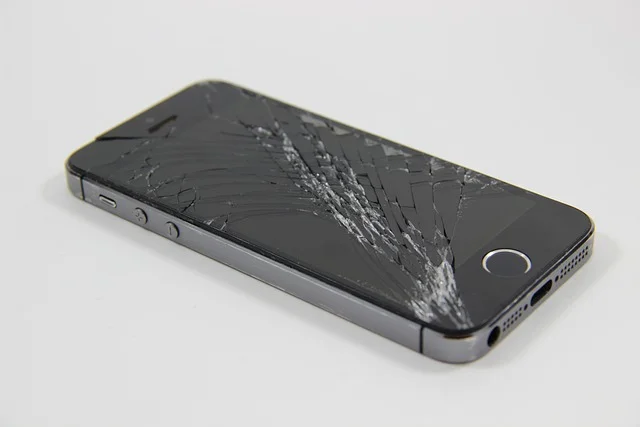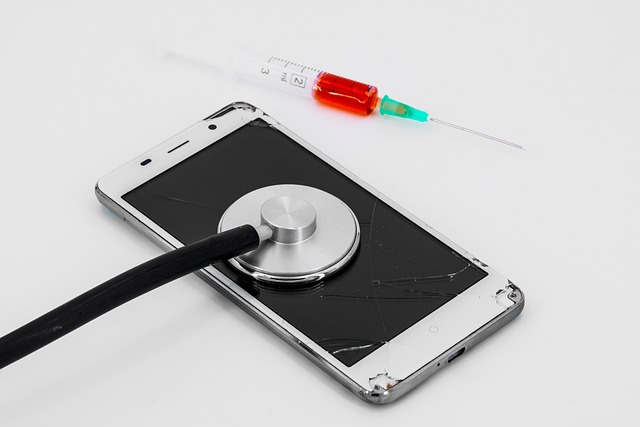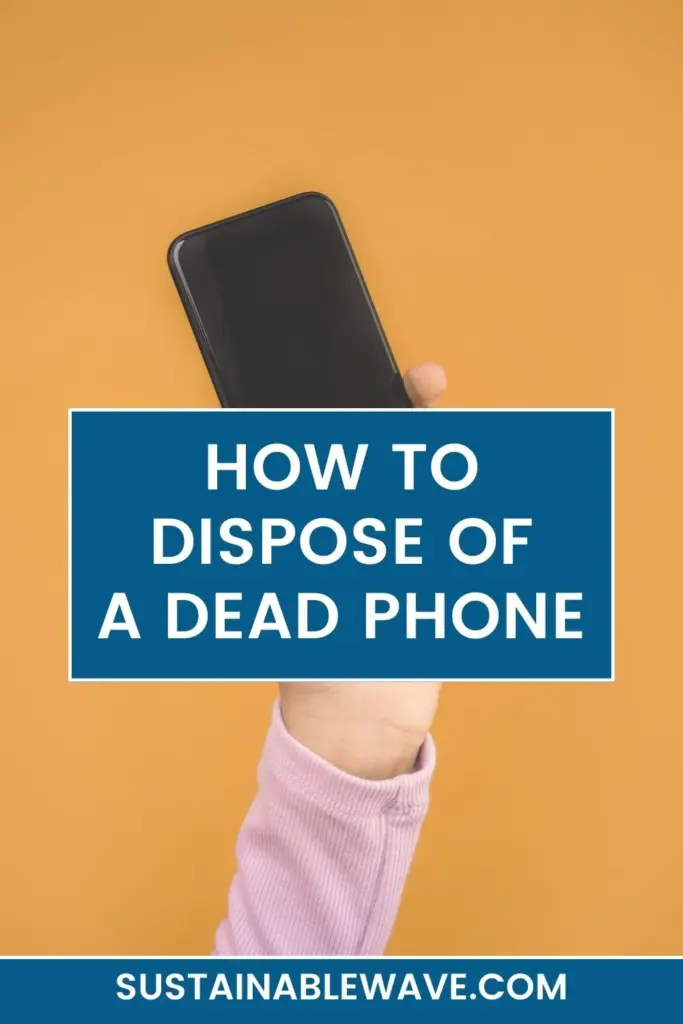With the rapid evolution of technology, most of us have faced the inevitable fate of a dead phone. But what do you do with it? Just chuck it in the trash and hope for the best? Far from it! Proper disposal of dead phones helps protect our environment and ensures our personal data remains secure.
To dispose of a dead phone responsibly, consider recycling, donating to charities, selling for parts, returning to the provider, or using local e-waste collection events. Always ensure personal data is wiped before disposal.
In this guide, we’ll explore the ins and outs of how to dispose of a dead phone. So, let’s dive right in!
How to Dispose of a Dead Phone

Your phone may have bitten the dust, but that doesn’t mean it should be thrown out like yesterday’s news. There’s more than meets the eye when it comes to electronic waste disposal.
And you’d be surprised at the treasure trove of components inside that seemingly useless device.
Environmental Hazards of Improper Disposal
In our modern age, cell phones have become ubiquitous. But as these devices reach the end of their lifecycles, it’s paramount to consider the environmental implications of their disposal.
Improperly trashed phones can wreak havoc in more ways than one.
Heavy Metals and Chemicals: Phones are complex devices made up of a myriad of materials, many of which are toxic. Lead, mercury, arsenic, and cadmium are just a few of the heavy metals present in these gadgets.
When they end up in landfills, these metals can leach into the soil, contaminating groundwater, affecting local ecosystems, and eventually making their way into human consumption through drinking water.
E-Waste Pile-Up: Our appetite for the latest tech has led to a mounting e-waste problem. In the US alone, millions of phones are discarded every year. Not only do they occupy a significant space, but they also persist for hundreds of years, contributing to the ever-growing landfill crisis.
Greenhouse Gas Emissions: The production and disposal of phones contribute to carbon emissions. While the manufacturing process is a significant culprit, the decomposition of phones in landfills also releases greenhouse gases, further exacerbating climate change.
Securing Personal Data
A dead phone doesn’t necessarily mean dead data. Even when your device won’t turn on, the wealth of information stored within remains intact and potentially accessible.
Potential for Data Breaches: In today’s digital age, our phones are virtual treasure chests of personal information. From bank details to personal photos, and messages to emails, the data within can be a goldmine for cybercriminals. Simply discarding the phone without ensuring the data is wiped can expose you to potential breaches.
Identity Theft: With enough information, unscrupulous individuals can impersonate you, apply for credit in your name, make purchases, or even commit more heinous crimes under your identity. A discarded phone can sometimes provide all the necessary details.
How to Secure Your Data: Before you even think of disposing of your phone, always perform a factory reset. For added security, remove the SIM card and any external storage. If you’re unsure, consider professional services that specialize in data wiping.
Recycling: The Eco-Friendly Option
Recycling isn’t just for paper and plastics. Your old phone can and should be recycled, and here’s why:
Conservation of Resources: Phones are made up of many valuable materials, including gold, silver, and copper. By recycling, these materials can be extracted and reused, reducing the need for virgin resources and the environmental impact of mining.
Energy Savings: Producing new phones from raw materials requires a tremendous amount of energy. By recycling and reusing components, we can significantly cut down on the energy required, leading to reduced greenhouse gas emissions.
Job Creation: Recycling industries play a pivotal role in job creation. By choosing to recycle your phone, you’re not just helping the environment but also contributing to the economy.
How to Recycle Your Phone: Many retailers, service providers, and municipalities offer phone recycling programs. All you need to do is drop off your old device. Some even offer incentives or discounts on new devices in exchange!
Donating to a Good Cause
Our phones, even in their non-operational states, can make a significant impact on the lives of others when donated.
Making a Difference: Many charitable organizations and non-profits collect old phones, refurbish them, and provide them to those in need. From victims of domestic violence seeking a lifeline to low-income individuals needing a way to communicate or access job opportunities, your old phone can genuinely change someone’s life.
Beneficial for Education: Some educational programs utilize old phones for teaching purposes. They can serve as practical tools for students learning about technology, electronics, or environmental studies.
Tax Deductions: In the US, donating your phone to a registered charity can also offer a tax advantage. Ensure you receive a receipt upon donation to use as documentation during tax season.
How to Donate: Before donating, make sure to wipe your phone of all personal data. Many charitable organizations have drop-off locations or mail-in programs to make the donation process seamless.
Selling it for Parts
While your phone might be dead, its components can still hold value.
Valuable Components: Mobile phones are intricate devices with numerous valuable components, from screens and cameras to motherboards and casings. These parts can often be harvested and used in repairing other devices.
Economic Gain: Selling your dead phone for parts can not only help you recoup some of its initial costs but also reduce electronic waste. There’s a bustling market for phone parts, especially for popular models.
Environmentally Responsible: By selling your phone for parts, you ensure that its components get reused, reducing the need for new raw materials and lessening the environmental footprint of manufacturing new parts.
Where to Sell: Numerous online platforms specialize in buying old phones for parts. Additionally, local repair shops might be interested in purchasing dead phones to harvest parts for their repair services.
Take it Back to the Provider
Manufacturers and service providers are becoming increasingly aware of the importance of responsible electronic waste management.
Provider Take-Back Programs: Many phone manufacturers and service providers offer programs where customers can return their old devices. These companies will then either refurbish the phone for resale, use it for parts, or ensure it’s recycled responsibly.
Data Security: One of the perks of returning your phone to the provider is that they often have processes in place to ensure all personal data is securely wiped from the device, offering you peace of mind.
Incentives and Discounts: Some providers offer incentives for returning old devices, such as discounts on future purchases, trade-in credits, or even cashback.
Convenient and Responsible: Most providers make the return process straightforward. They understand the importance of responsible disposal and actively encourage consumers to bring back old devices.
Other Responsible Disposal Methods For a Dead Phone

Beyond donating, selling for parts, or returning to providers, several other responsible disposal methods ensure our old phones don’t harm the environment or waste valuable resources.
Local E-Waste Collection Events: Many municipalities organize periodic e-waste collection events where locals can drop off their old electronic devices, including mobile phones. These events ensure that the electronics are either responsibly recycled or safely disposed of.
E-Waste Drop-Off Centers: These dedicated facilities are equipped to handle electronic waste in an eco-friendly manner. They specialize in dismantling electronics, salvaging usable parts, and safely disposing of hazardous materials.
Mail-Back Programs: Some organizations and companies offer mail-back envelopes or packages for you to send in your old phones. These programs often include prepaid postage, making the disposal process as hassle-free as possible for the user.
Trade-In Programs: Not limited to providers, many retailers also offer trade-in programs where you can exchange your old phone for store credit or a discount on a new purchase. While this isn’t strictly “disposal,” it ensures the old device is taken off your hands and dealt with appropriately.
Repurpose the Phone: Before even thinking of disposal, consider if the phone has any alternate uses. Can it serve as a dedicated music player, a digital photo frame, or perhaps an alarm clock? Repurposing can give your device a second lease on life.
Compostable Phones: An emerging trend in sustainable tech, some phones are now designed to be compostable. If you own such a device, you can dispose of it in your compost pile or bin, where it will naturally degrade without harming the environment.
How to Choose the Right Method
Before opting for any disposal method, consider a few key factors:
- Data Security: Always ensure your personal data is wiped clean from the device, no matter the disposal method.
- Environmental Impact: Aim to choose a method that reduces electronic waste and minimizes harm to the environment.
- Convenience: While it’s essential to be environmentally responsible, it’s also helpful if the method aligns with your convenience. Look for options that are easily accessible and straightforward.
Final Words on How to Dispose of a Dead Phone

Disposing of a dead phone isn’t as simple as tossing it in the bin.
With many options available, from recycling to donation, it’s easier than ever to get rid of your old device in a responsible manner. Not only does this protect the environment, but it also ensures your personal data remains secure.
So the next time you’re faced with a dead phone, remember, it’s not the end of the line – it’s just the beginning of a new, eco-friendly journey!
I’m Thomas, the owner of SustainableWave. Passionately promoting a sustainable planet. With experience in various eco-roles, I’ll share green tips, sustainability hacks, and personal eco-journeys on my blog.






